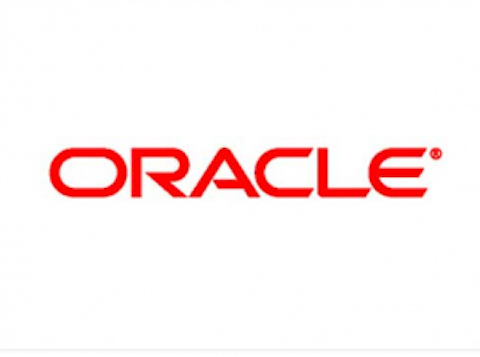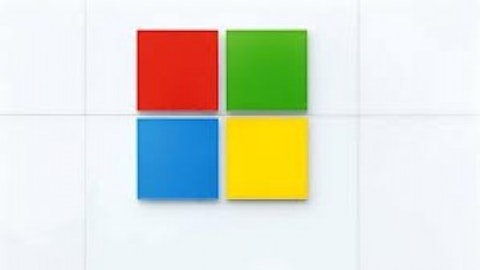
Despite having a sizable lead in the session border control — or SBC — market, Acme Packet posted a 15% decline in revenue, while product revenue shed 20% year over year. This was the effect of poor spending from the likes of Verizon Communications Inc. (NYSE:VZ) and other carriers, which comprise of 80% of Acme Packet’s business (thus the level of risk that Oracle now assumes).
Considering Oracle’s acquisition of Sun Microsystems three years ago has not exactly panned out, including 16% drop in hardware revenue recently, I was astonished that the company was interested in pursuing more hardware assets. Then again, this is why the company’s CEO, Larry Ellison, is considered shrewd by many experts and one of the best in the business. The company does things that are completely unexpected. And more often than not, they work.
What is Oracle getting in this deal?
All of that aside, this is what investors want to know. And does it make sense, given Acme Packet’s recent decline in profitability? That may or may not matter now given Oracle’s solid track record in execution. Nonetheless, the swift shift in the communications industry strongly influenced this deal. Users are becoming more connected with their mobile devices and Oracle sees an opportunity to diversify its service offerings, particularly in the enterprise.
What’s more, Acme Packet presents Oracle a way to leverage what Oracle already does well, especially with there being a growing demand among service providers who are looking for ways to engage their customers in more effective ways. To that end, Acme Packet’s “Net-Net” line of products is arguably the best in the realm of SBC. Oracle sees a way to effectively compete with the likes of Cisco Systems, Inc. (NASDAQ:CSCO) , which has recently formed a partnership with Oracle’s cloud-rival Citrix Systems, Inc. (NASDAQ:CTXS).
However, for Oracle, it’s not as easy as just buying one’s way into a market and expecting the dynamics to change. Granted, Acme Packet’s SBC lead is meaningful at a 40% share. But Oracle still has to deal with the fact that this lead is highly levered to 80% revenue from carriers, whereas Cisco does not have such a dependency. Plus Cisco and Juniper Networks, Inc. (NYSE:JNPR), which have more enterprise leverage, continue to make inroads in the SBC market through product upgrades.
Then again, neither can compare to Acme Packet’s Net-Net 6300, a product that supports 1 million subscribers and has the capability of handling 200,000 simultaneous calls. This will allow Oracle to offer enterprise clients secure network sessions that supports multiple applications. Plus the device is intelligent enough that it can prioritize delivery based on network policies.
Can Oracle gain meaningful ground?
Still, it’s a big gamble to think that an Oracle/Acme Packet union can fend off more prominent names such as Cisco, which recently acquired Intucell for $475 million in cash. Granted, Intucell is not Acme Packet, but Intucell’s self-optimized network — or SON — software platform offers some of the same benefits as the Net-Net series since it can intelligently manage network traffic in real time. For now, at least, this means Oracle does not have to worry about the smaller players such as Alcatel Lucent SA (ADR) (NYSE:ALU) and Ciena Corporation (NASDAQ:CIEN).
Then again, it’s also possible that I’m making too much it this, especially since IP packet transport or data transmission is not Oracle’s core business. Rather, this is a company that is known for its expertise in data analytics and the cloud, an area where it competes with the likes of salesforce.com, inc. (NYSE:CRM) and International Business Machines Corp. (NYSE:IBM). Essentially, this deal for Acme Packet just might have been Oracle’s signature piece to its model — a way to create separation from core rivals.
With that in mind, it certainly introduces the possibility that more deals are on the horizon. Oracle has always been considered a savvy acquirer. And with the premium it’s paying for Acme Packet, Oracle will certainly want to protect this investment in any way it feels necessary, including more acquisitions. For now, investors are stuck trying to decipher how much value Acme Packet has brought Oracle.
Considering Acme Packet’s 40% share in the SBC market, this is addressable territory Oracle can use. In that regard, neither Salesforce, IBM nor Microsoft Corporation (NASDAQ:MSFT) has such an advantage, or the ability to pivot off of their cloud offerings. So, it’s fair to suggest, against these rivals, Oracle should begin to grow incremental market share. To what extent remains to be seen. And it will all hinge on how well and how quickly Oracle can synergize this deal. This not only makes this stock interesting, but it appears undervalued by at least 15%.
The article What Is Oracle Really Gaining From Acme Packet? originally appeared on Fool.com and is written by Richard Saintvilus.
Fool contributor Richard Saintvilus has no position in any stocks mentioned. The Motley Fool recommends Acme Packet, Cisco Systems, and Salesforce.com. The Motley Fool owns shares of International Business Machines (NYSE:IBM)., Microsoft, and Oracle.
Copyright © 1995 – 2013 The Motley Fool, LLC. All rights reserved. The Motley Fool has a disclosure policy.





